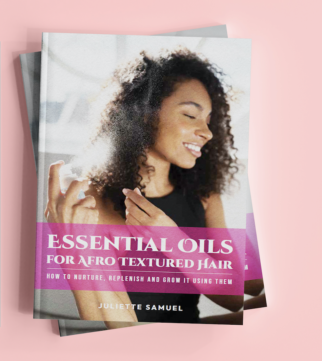 What is hypothyroidism and How Does It Affect Mature Black Skin?
What is hypothyroidism and How Does It Affect Mature Black Skin?
Hypothyroidism and mature black skin. Hypothyroidism is a condition where the thyroid gland doesn’t produce enough thyroid hormone. This can cause a number of symptoms, including fatigue, weight gain, depression, and dry skin.
Hypothyroidism can also cause hyperpigmentation – darker patches – in your beautiful black skin. Hypothyroidism is most common in women over the age of 60. However, it can occur at any age. In some cases, it may be Genetic.
How Does Hypothyroidism Affect Hair?
Hypothyroidism can cause a number of changes to your hair, including thinning, dryness, and brittleness. Your hair may also, more slowly, fall out in clumps. With dark hair, hypothyroidism can often cause your hair to become lighter in color.
What Can Be Done to Treat Hypothyroidism?
Hypothyroidism is a treatable condition and a visit to your doctor is advised for any treatment. The most common treatment is levothyroxine, a synthetic form of thyroid hormone. Levothyroxine replaces the missing hormone and helps to regulate the body’s metabolism. In most cases, treatment with levothyroxine will lead to a reduction in symptoms and a return to normal hair growth and texture.
Although Levothyroxine is most common for treatment, your doctor will determine the best way to treat your hypothroidism.
What’s the Best Skin Care Routine for Hypothyroidism And Mature Black Skin?
A good skin care routine is important for anyone, but it’s especially important for those with hypothyroidism. A gentle cleanser, a moisturizer, and sunscreen are all necessary. It’s also important to avoid harsh soaps and cleansers, as these can further dry out the skin. People with hypothyroidism should also avoid excessive sun exposure, as this can worsen hyperpigmentation.
What Are The Best Ingredients to Look for In A Skin Care Product For Hypothyroidism?
Some of the best ingredients for hypothyroidism are those that help to improve hydration and protect your skin from damage. Hyaluronic acid is a good ingredient to look for, as it helps to keep the skin hydrated. Niacinamide is another ingredient that can help to reduce hyperpigmentation and improve the overall appearance of your skin. Antioxidants, such as vitamin C, are also beneficial, as they help to protect your skin from damage caused by free radicals.
What’s The Best Way To Care For Your Hair With Hypothyroidism?
When it comes to hair care, there are a few things to keep in mind. First, use a gentle shampoo and conditioner. Avoid products with harsh chemicals or sulfates, as these can further dry out the hair. It’s also important to use a heat protectant if you plan on using any heated styling tools. And finally, be sure to get regular trims to keep your hair looking its best.
Can Essential Oils Be Used In Hair Care Products for Hypothyroidism?
There is some evidence to suggest that essential oils can be beneficial for people with hypothyroidism. Rosemary oil, in particular, has been shown to stimulate hair growth. Peppermint oil may also help to improve circulation and reduce inflammation. When using essential oils, be sure to mix them with a carrier oil, such as jojoba oil, before applying to the hair.
The Bottom Line
Hypothyroidism is a condition that can cause a number of changes to your skin and hair, including dryness, thinning, and hyperpigmentation. A good skin care routine and the use of products with certain ingredients can help to improve the appearance of your skin and hair.
Essential oils may also be beneficial. Be sure to talk to your doctor before using any essential oils, as they may interact with other medications you are taking.
That’s it for this week. Like what you’ve read? Share it with your friends and colleagues.
As always …
Dedicated To Your Beauty,
Juliette Samuel,
Esthetician/Author/Publisher,




 Facebook
Facebook Twitter
Twitter Delicious
Delicious Digg
Digg Myspace
Myspace StumbleUpon
StumbleUpon Youtube
Youtube